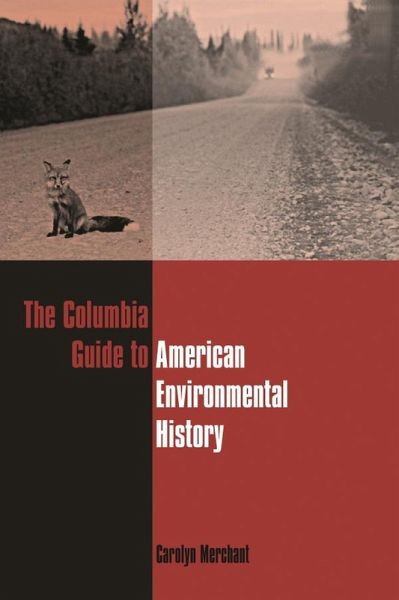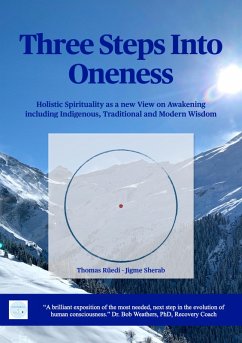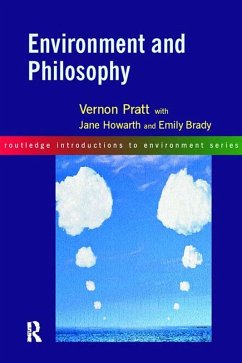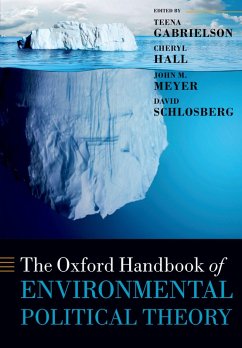
The Columbia Guide to American Environmental History (eBook, ePUB)

PAYBACK Punkte
13 °P sammeln!
How and why have Americans living at particular times and places used and transformed their environment? How have political systems dealt with conflicts over resources and conservation? This is the only major reference work to explore all the major themes and debates of the burgeoning field of environmental history. Humanity¿s relationship with the natural world is one of the oldest and newest topics in human history. The issue emerged as a distinct field of scholarship in the early 1970s and has been growing steadily ever since. The discipline¿s territory and sources are rich and varied and...
How and why have Americans living at particular times and places used and transformed their environment? How have political systems dealt with conflicts over resources and conservation? This is the only major reference work to explore all the major themes and debates of the burgeoning field of environmental history. Humanity¿s relationship with the natural world is one of the oldest and newest topics in human history. The issue emerged as a distinct field of scholarship in the early 1970s and has been growing steadily ever since. The discipline¿s territory and sources are rich and varied and include climactic and geological data, court records, archaeological digs, and the writings of naturalists, as well as federal and state economic and resource development and conservation policy. Environmental historians investigate how and why natural and human-created surroundings affect a society¿s development. Merchant provides a context-setting overview of American environmental history from the beginning of the millennium; an encyclopedia of important concepts, people, agencies, and laws; a chronology of major events; and an extensive bibliography including films, videos, CD-Roms, and websites. This concise "first stop" reference for students and general readers contains an accessible overview of environmental history; a mini-encyclopedia of ideas, people, legislation, and agencies; a chronology of events and their significance; and a bibliography of books, magazines, and journals as well as films, videos, CD-ROMs, and online resources. In addition to providing a wealth of factual information, The Columbia Guide to American Environmental History explores contentious issues in this much-debated field, from the idea of wilderness to global warming.
How and why have Americans living at particular times and places used and transformed their environment? How have political systems dealt with conflicts over resources and conservation? This is the only major reference work to explore all the major themes and debates in the burgeoning field of environmental history. Humanity's relationship with the natural world is one of the oldest and newest topics in human history. The issue emerged as a distinct field of scholarship in the early 1970s and has been growing steadily ever since. The discipline's territory and sources are rich and varied and include climatic and geological data, court records, archaeological digs, and the writings of naturalists, as well as federal and state economic and resource development and conservation policy. Environmental historians investigate how and why natural and human-created surroundings affect a society's development. Merchant provides a context-setting overview of American environmental history from the precolonial land-use practice of Native Americans and concluding with twenty-first concerns over global warming. The book also includes a glossary of important concepts, people, agencies, and legislation; a chronology of major events; and an extensive bibliography including films, videos, CD-ROMs, and websites.
This concise reference for students and general readers contains an accessible overview of American environmental history; a mini-encyclopedia of ideas, people, legislation, and agencies; a chronology of events and their significance; and a bibliography of books, magazines, and journals as well as films, videos, CD-ROMs, and online resources.
In addition to providing a wealth of factual information, The Columbia Guide to American Environmental History explores contentious issues in this much-debated field, from the idea of wilderness to global warming.
How and why have Americans living at particular times and places used and transformed their environment? How have political systems dealt with conflicts over resources and conservation? This is the only major reference work to explore all the major themes and debates in the burgeoning field of environmental history. Humanity's relationship with the natural world is one of the oldest and newest topics in human history. The issue emerged as a distinct field of scholarship in the early 1970s and has been growing steadily ever since. The discipline's territory and sources are rich and varied and include climatic and geological data, court records, archaeological digs, and the writings of naturalists, as well as federal and state economic and resource development and conservation policy. Environmental historians investigate how and why natural and human-created surroundings affect a society's development. Merchant provides a context-setting overview of American environmental history from the precolonial land-use practice of Native Americans and concluding with twenty-first concerns over global warming. The book also includes a glossary of important concepts, people, agencies, and legislation; a chronology of major events; and an extensive bibliography including films, videos, CD-ROMs, and websites.
This concise reference for students and general readers contains an accessible overview of American environmental history; a mini-encyclopedia of ideas, people, legislation, and agencies; a chronology of events and their significance; and a bibliography of books, magazines, and journals as well as films, videos, CD-ROMs, and online resources.
In addition to providing a wealth of factual information, The Columbia Guide to American Environmental History explores contentious issues in this much-debated field, from the idea of wilderness to global warming.
Dieser Download kann aus rechtlichen Gründen nur mit Rechnungsadresse in A, D ausgeliefert werden.













